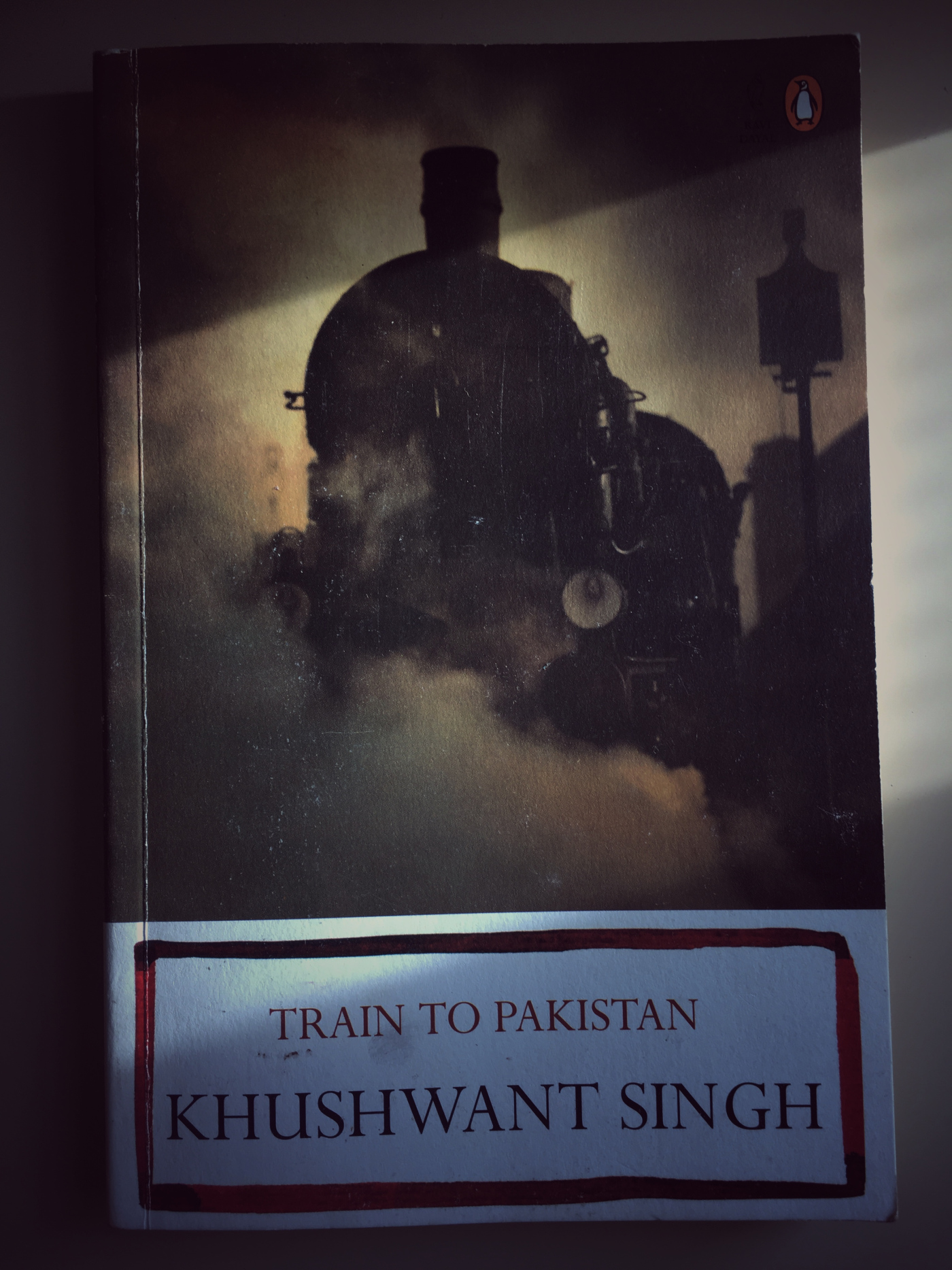I have always been in awe of this writer Khushwant Singh. When I was in school, I remember a notorious classmate bring Khushwant Singh’s autobiography “Truth, Love and a little Malice” and the entire class had a field day reading the parts where he describes his sex life explicitly.
Train to Pakistan is different, it is simple and so powerful, it removed me from my immediate surroundings(my office desk with a view) and I found myself in Mano Majra, a border village between India and the newly formed Pakistan in 1947.
The hero of the story is a local Sikh badmash Juggut Singh who is in love with the Muslim weaver’s daughter, Nooran. When dacoits from a nearby village murder and loot the Hindu moneylender in Mano Majra, policemen arrest Juggut and a bourgeois social worker Iqbal Singh who is cast as a Muslim because of his ambiguous name and a circumcised body part. When trains loaded with dead bodies of Sikhs and Hindus from Pakistan arrive in the Mano Majra railway station, the magistrate, Hukum Chand decides to use Juggut and Iqbal for generating a feeling of insecurity in the Muslim tenants of Mano Majra, so they would easily evacuate to a refugee camp before riots break out. The Muslims are evacuated, but Hukum Chand’s plans foil when agitators corrupt the villagers into taking arms to kill the Muslims who would be transported to Pakistan. He releases Juggut Singh and Iqbal with the hope that they would help save the refugees in some way.
The story shows how humans quickly change when in a mob. The same friends who tearfully depart you to safety in the morning, will take guns to kill you in the night if sufficiently agitated and convinced on the grounds of defending your religion. Train to Pakistan does not preach you tolerance, or teach you history. Mano Majra is the microcosm of how things must have unfolded in every town, for every Hindu, Muslim, or Sikh during the partition riots.
It is a story that just is.
Khushwant Singh is a skillful narrator, with a penchant for humor and description alike. While he will tell you about the railway bridge and the khus grass on the river plain in detail, he will leave you wanting for details of the characters. That is because he knows the story is not about the characters so much as the situation. About how pawns play in the game of fate and history. History repeats itself, and it does not care about the fate of the individual characters involved in it.
Not forever does the bulbul sing
In balmy shades of bowers,
Not forever lasts the spring
Nor ever blossom flowers.
Not forever reigneth joy,
Sets the sun on days of bliss,
Friendships not forever last,
They know not life, who know not this.

keep it up !! Its message for youngsters !!
LikeLike
I saw the movie before I read the book. Both were done so masterfully.
LikeLike